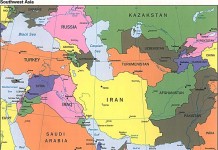In the aftermath of the Raymond Davis incident, the signs showing the nature of the evolving US-Pakistan relations are beginning to emerge. In this regard, PolTact previously presented preliminary observations in its analysis of the improving Pakistan-India relations. The statement made by Major General Ghayur Mehmood yesterday, suggest that Pakistan Army is moving towards owning the drone attacks. This article examines the implications of this dramatic development.
Analysis
The comments on drone attacks came from the commander of Pakistan’s 7th Division, Major General Gahyur Mehmood, who is also in charge of troops in North Waziristan. According to media reports, he delivered the following statement during a briefing:
“Myths and rumours about US predator strikes and the casualty figures are many, but it’s a reality that many of those being killed in these strikes are hardcore elements, a sizeable number of them foreigners.
“Yes there are a few civilian casualties in such precision strikes, but a majority of those eliminated are terrorists, including foreign terrorist elements.”
He also commented on the side effects, such as migration of the local population, producing permanent angst, including social and political consequences.
It is clear that by clarifying the narrative on who gets killed in these attacks, Pakistan Army has for the first time moved towards publicly owning the drone tactics. This outcome may be directly connected to behind the scenes powwow between the intelligence agencies of the two countries. The CIA must have raised the contentious question again; on whose side is the Pakistan Army? And one of the ways to answer this question is by owning the drone attacks, and to clear the public and international controversy that surrounds it.
However, this announcement is going to reduce the domestic popularity of the army. At the same time, it would help repair the image of politicians, who up to now were facing the brunt of the public outcry related to drone attacks in the country. The prevalent perception in the country maintains it’s the military that wants a political solution to the Afghan conflict. On the other hand, the weak Pakistan Peoples Party (PPP) led government needs US support to stay in power, and that is why it condones a military solution to the conflict. Tehreek-e-Taliban Pakistan has previously linked drone attacks to its terror attacks with in the country, claiming that drones also kill many civilians.
Pakistan interior minister Rehman Malik moved quickly yesterday to capitalize on the changing circumstances. He stated after the deadly bomb blast in Faisalabad, the government was willing to negotiate with the extremists if they laid down arms. The attack in Faisalabad killed 36 people and is believed to be targeting an ISI facility in the vicinity. Tehreek-e-Taliban Pakistan (TTP) claimed responsibility for the attack.
The terrorist attacks are likely to increase on military targets, as the army moves towards owning the drone tactics. Today mourners at a funeral were targeted in Matni area near Peshawar, killing 37 people. Tehreek-e-Taliban Pakistan (TTP) accepted responsibility for attacking the funeral of the wife of an individual, who is linked to anti-taliban lashkar in the area.
“These lashkars are raised to create chaos instead of maintaining peace,” Ihsanullah Ihsan, a Taliban spokesman, told Reuters. “The lashkars and the army are fighting us at the behest of the Americans. We will continue attacks on them.”
What Pakistan would probably get in return for owning the drone attacks, is the commencement of Pakistan-India dialogue, continued western economic and military assistance, and a stake in the political solution for Afghan conflict. However, it’s not clear what bargain may have been reached with regard to Pakistani support for Haqqani network.



